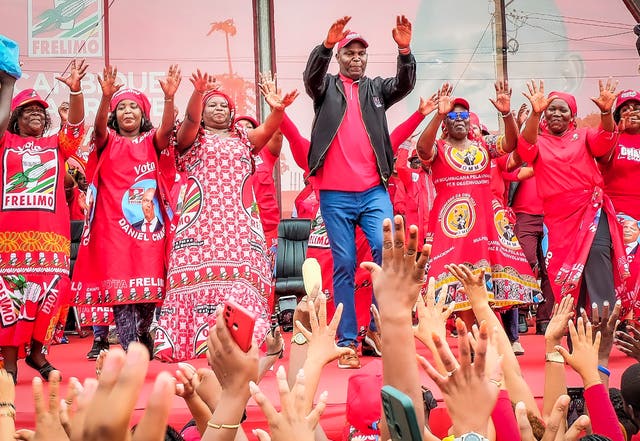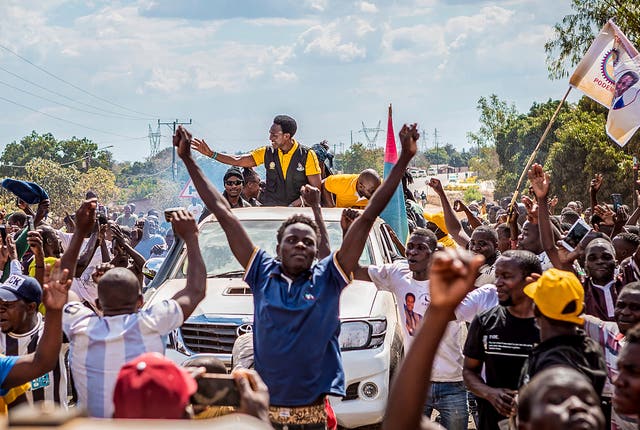Mozambique’s ruling party looks to extend 49 years in power
Daniel Chapo is seeking to succeed President Filipe Nyusi in Wednesday’s election.

Mozambique will vote for a new president on Wednesday in an election that is expected to extend the ruling party’s 49 years in power since independence from Portugal in 1975.
Daniel Chapo, 47, is the candidate for the ruling Front for the Liberation of Mozambique, or Frelimo, seeking to succeed President Filipe Nyusi, who has served a maximum of two terms.
Analysts say the strongest challenge to Mr Chapo and Frelimo’s dominance will come from 50-year-old independent Venancio Mondlane.
People also will vote for the make-up of Parliament and for provincial governors in a country of 33 million people that went through a bloody, 15-year civil war that ended in 1992, and has been shaken by an ongoing violent jihadist insurgency in the north.

Ending that insurgency and bringing stability to Cabo Delgado province — where 1.3 million fled their homes and more than half remain displaced — is a pledge by both leading candidates.
Vote counting is due to start right after polls close in the one-day election. Preliminary results from some areas are expected from Thursday, and the full results must be delivered to the Constitutional Council within 15 days of polls closing to be validated and formally declared. Around 17 million people are registered to vote.
The credibility of the election will be under scrutiny, with the leftist Frelimo party accused of ballot-stuffing and falsifying results in previous votes, including last year’s local elections, where it was declared the winner in 64 out of 65 municipalities.
Frelimo has consistently denied the accusations of election tampering. Teams of regional and international election observers are in Mozambique, including from the European Union.
Frelimo effectively established a one-party state following independence and fought a civil war against the Mozambique National Resistance, or Renamo, for a decade and a half.

The country, where Portuguese remains the official language, held its first elections in 1994, two years after a peace agreement.
Renamo will also contest this election with party leader Ossufo Momade, a military commander in the civil war, its candidate for president.
The former rebel group has seen its popularity wane, while the peace between Frelimo and Renamo has been fragile, with an outbreak of more fighting in 2013. Mr Momade and outgoing leader Mr Nyusi signed another peace deal in 2019, but tensions remain.
The independent Mr Mondlane, who broke away from Renamo, has focused his campaign on young Mozambicans frustrated with poverty and unemployment. The country boasts a long coastline of beaches on the Indian Ocean, but that vulnerable area has been battered by cyclones and drought in recent years.
Meanwhile, it emerged in 2016 that government officials and others had embezzled more than two billion dollars (£1.52 billion) in foreign loans that were kept secret, sending the economy into crisis.
Mr Mondlane was aligned with a coalition of opposition parties, but they were barred from contesting the election, which raised accusations against Frelimo of attempting to control the election. He is now supported by a new party called Podemos, which means “we can” in Portuguese.
While the former banker represents a fresh challenge to Frelimo, most analysts expect the ruling party to remain in power. It was declared the winner with more than 70% of the vote in national elections five years ago.





